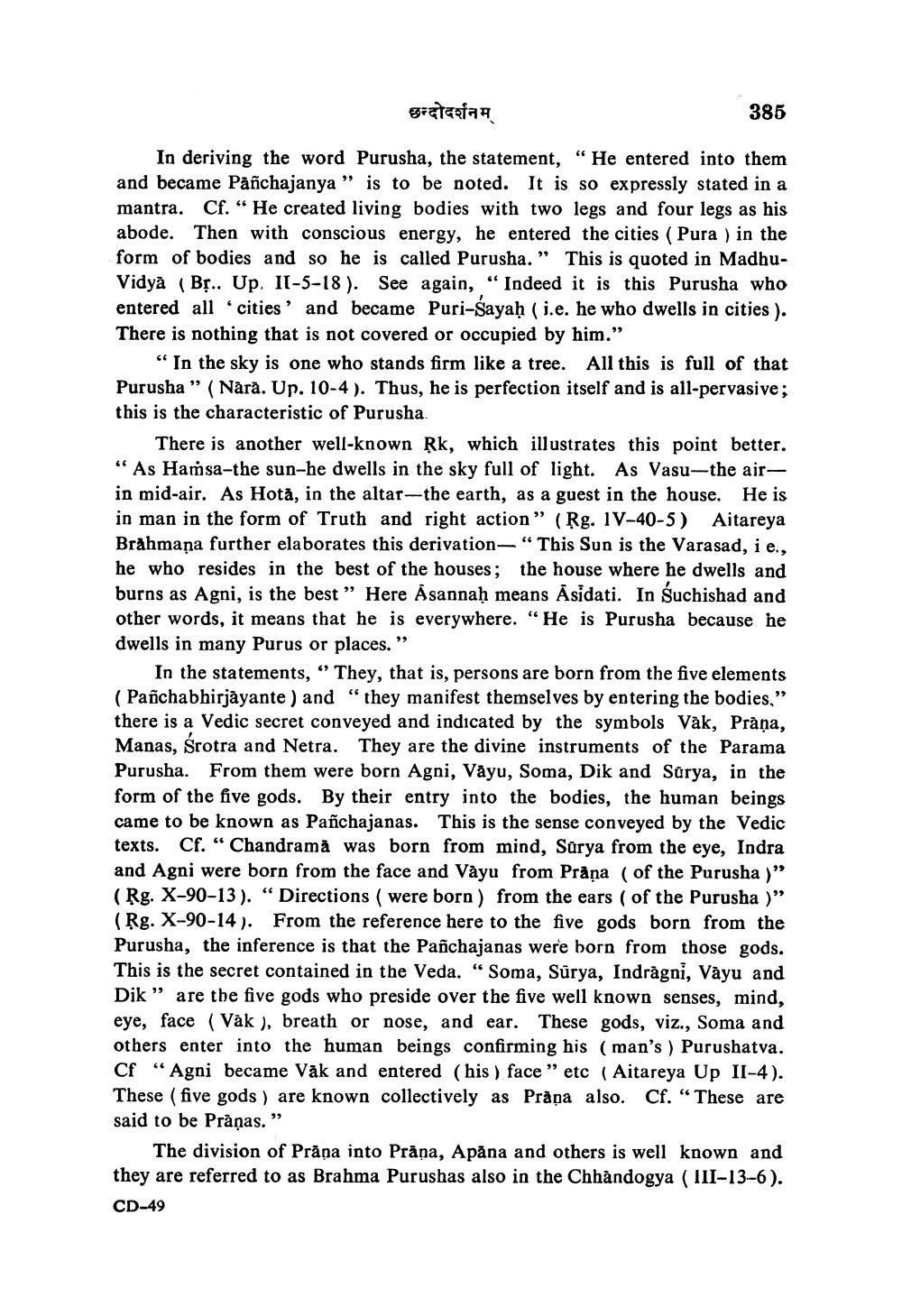________________
छन्दोदर्शनम्
In deriving the word Purusha, the statement, "He entered into them and became Pañchajanya " is to be noted. It is so expressly stated in a mantra. Cf." He created living bodies with two legs and four legs as his abode. Then with conscious energy, he entered the cities (Pura) in the form of bodies and so he is called Purusha." This is quoted in MadhuVidyà (Br.. Up. II-5-18). See again, "Indeed it is this Purusha who entered all cities' and became Puri-Sayaḥ (i.e. he who dwells in cities). There is nothing that is not covered or occupied by him."
385
"In the sky is one who stands firm like a tree. All this is full of that Purusha" (Nară. Up. 10-4). Thus, he is perfection itself and is all-pervasive; this is the characteristic of Purusha.
There is another well-known Rk, which illustrates this point better. "As Hamsa-the sun-he dwells in the sky full of light. As Vasu-the airin mid-air. As Hotă, in the altar-the earth, as a guest in the house. He is in man in the form of Truth and right action" (Rg. IV-40-5) Aitareya Brahmana further elaborates this derivation- "This Sun is the Varasad, i e., he who resides in the best of the houses; the house where he dwells and burns as Agni, is the best" Here Asannah means Asidati. In Suchishad and other words, it means that he is everywhere. "He is Purusha because he dwells in many Purus or places.
""
In the statements, "They, that is, persons are born from the five elements (Pañchabhirjāyante) and they manifest themselves by entering the bodies," there is a Vedic secret conveyed and indicated by the symbols Vak, Praṇa, Manas, Śrotra and Netra. They are the divine instruments of the Parama Purusha. From them were born Agni, Vayu, Soma, Dik and Surya, in the form of the five gods. By their entry into the bodies, the human beings came to be known as Pañchajanas. This is the sense conveyed by the Vedic texts. Cf. "Chandrama was born from mind, Surya from the eye, Indra and Agni were born from the face and Vayu from Prana (of the Purusha)" (Rg. X-90-13). "Directions ( were born) from the ears ( of the Purusha )" (Rg. X-90-14). From the reference here to the five gods born from the Purusha, the inference is that the Pañchajanas were born from those gods. This is the secret contained in the Veda. "Soma, Surya, Indragni, Vayu and Dik" are the five gods who preside over the five well known senses, mind, eye, face (Vak), breath or nose, and ear. These gods, viz., Soma and others enter into the human beings confirming his (man's) Purushatva. Cf "Agni became Vak and entered (his ) face" etc (Aitareya Up II-4). These (five gods) are known collectively as Prana also. Cf. "These are said to be Pranas.
35
The division of Prana into Praṇa, Apana and others is well known and they are referred to as Brahma Purushas also in the Chhandogya (III-13-6).
CD-49




